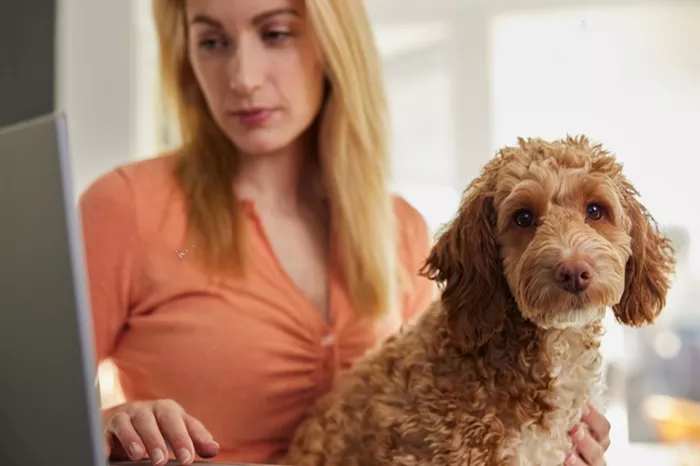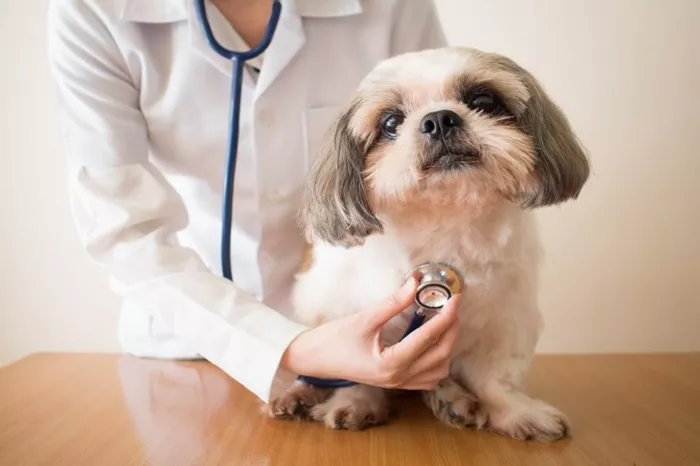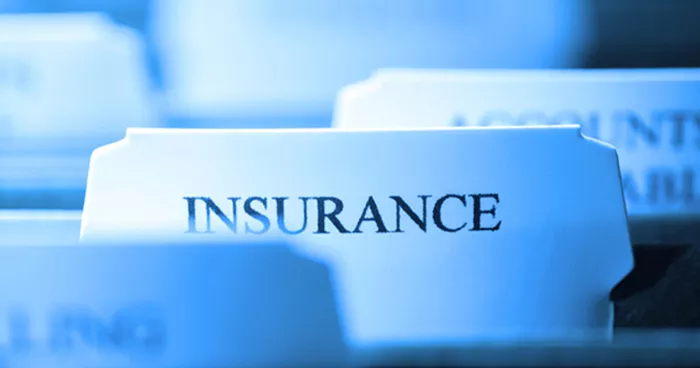Pet insurance is designed to provide financial protection for pet owners in case their pets get sick or injured, but there’s another aspect of coverage that not all pet owners are aware of: third-party liability. This type of coverage is becoming increasingly important as pet owners are held responsible for the actions of their pets in certain situations. In this article, we’ll explore what third-party liability means in the context of pet insurance, how it works, and why it’s something you should seriously consider.
What Is Third-Party Liability?
Third-party liability in pet insurance refers to coverage that protects the pet owner in case their pet causes damage to a person, property, or another animal. Simply put, it covers situations where your pet causes harm to someone or something outside of your household, and you, as the pet owner, are held legally responsible for that damage.
For example, if your dog bites someone during a walk or damages another person’s property by chewing on their belongings, third-party liability would help cover the costs associated with those damages. This coverage is crucial, as accidents can happen at any time, and pet owners can be financially liable for their pet’s actions.
Third-party liability typically covers:
Bodily Injury: If your pet injures another person, for example, by biting them, third-party liability can help cover medical expenses and legal fees associated with the injury.
Property Damage: If your pet damages someone else’s property, such as chewing on furniture or digging up a neighbor’s garden, the insurance can cover the repair costs or compensation for lost property.
Injury to Other Pets: In the unfortunate event that your pet injures another animal, third-party liability insurance can help cover the vet bills or compensation for the other pet’s injury.
It’s important to note that third-party liability insurance does not cover injuries or damages caused to you, your family, or your property. It is solely designed to protect against claims made by third parties.
Why Is Third-Party Liability Important?
While many pet owners focus on covering their pets’ health and medical expenses, third-party liability is just as important. Pet behavior can be unpredictable, and even the most well-behaved pet can cause accidents or injuries in certain situations.
Here are a few reasons why third-party liability insurance is essential:
1. Preventing Financial Ruin
If your pet causes significant harm, such as injuring a person or damaging valuable property, the financial costs can be staggering. Medical bills, legal fees, and compensation for property damage can easily run into thousands of dollars. Without third-party liability insurance, you would be responsible for covering these costs out of pocket, which could lead to financial hardship.
2. Protecting Against Legal Liabilities
In many places, pet owners are legally responsible for the actions of their pets. If your pet causes harm to someone, the injured party may sue you for compensation. Third-party liability coverage can help cover the legal costs of defending yourself in court, including lawyer fees, court costs, and any potential settlement or award for damages.
3. Coverage for Unpredictable Pet Behavior
Pets can behave unpredictably, even if they are usually calm and friendly. A dog may bite someone if it is frightened or startled, or a cat may scratch a person in a moment of panic. These types of behaviors, while not necessarily intentional, can still lead to serious injuries. Third-party liability insurance ensures that you’re protected if your pet’s actions result in harm to others.
4. Peace of Mind
Knowing that you have third-party liability coverage allows you to enjoy peace of mind while walking your pet or taking them out in public. You won’t have to worry about the financial and legal consequences of accidents that are beyond your control.
What Does Third-Party Liability Cover?
Third-party liability coverage typically includes a range of situations where your pet causes harm to others. Here’s a breakdown of what’s commonly covered:
1. Injuries to Other People
If your pet injures another person, such as biting or scratching them, third-party liability coverage can cover the medical expenses of the injured person. This could include:
Hospital bills
Medical treatments or procedures
Physical therapy costs
Pain and suffering compensation
Lost wages if the person is unable to work due to their injury
In the case of a dog bite, for instance, the person bitten may require urgent medical care, such as wound cleaning, stitches, or even rabies shots. Third-party liability can help cover those expenses, potentially saving you from a costly lawsuit.
2. Damage to Property
If your pet damages someone else’s property, your third-party liability coverage can help pay for repairs or replacement. This could include:
Damaging furniture or belongings: If your pet chews on a neighbor’s furniture or destroys something valuable, such as a laptop or a smartphone, the insurance can help cover the repair or replacement costs.
Damaging cars or homes: If your pet causes damage to a car by scratching or denting it, or destroys parts of a home, such as digging up the yard or breaking windows, third-party liability can help compensate the property owner.
3. Injury to Other Animals
Pet owners can also be liable if their pet injures another animal. For instance, if your dog attacks a neighbor’s pet, third-party liability insurance may cover the vet bills or provide compensation to the other pet’s owner. This aspect of coverage is particularly important if you have a pet with aggressive tendencies or if your pet is in an area where other animals are present.
4. Legal Fees and Court Costs
In the event that a third-party liability claim results in a lawsuit, third-party liability coverage can also cover the costs associated with defending yourself in court. This includes:
Lawyer fees
Court costs
Settlements or damages awarded by the court
This can be a significant benefit, as legal fees can quickly become overwhelming, especially if the case is complicated.
What Is Not Covered by Third-Party Liability?
While third-party liability provides broad protection, there are some important exclusions to be aware of. Common exclusions in third-party liability pet insurance policies include:
1. Injuries or Damage to Your Own Property
Third-party liability insurance does not cover any injuries or damage that your pet causes to your own property or to yourself. For example, if your dog damages your own furniture or injures you, your third-party liability policy won’t cover the costs.
2. Intentional Harm
If your pet intentionally causes harm to another person or animal, it may not be covered by third-party liability. Insurance providers typically don’t cover damage or injuries resulting from deliberate actions, such as if your pet is purposefully aggressive.
3. Pre-existing Conditions
If your pet has a history of aggressive behavior or a known issue that could lead to injury or damage, some insurers may exclude these incidents from liability coverage. For example, if your pet has previously bitten someone, the insurer may exclude future claims related to similar incidents.
4. Unprovoked Attacks
If your pet attacks another animal or person without any provocation, some insurers may exclude this from third-party liability coverage, especially if the behavior is deemed to be habitual or part of the pet’s nature.
How Does Third-Party Liability Work in Pet Insurance?
Third-party liability coverage works by protecting you against claims made by others for damages or injuries caused by your pet. Here’s a step-by-step overview of how it works:
Pet Causes Harm: Your pet causes an injury or damage to someone else’s property or person.
Claim Filed: The injured party files a claim against you for compensation for their damages or medical bills.
Insurance Pays: Your pet insurance policy covers the claim, up to the policy limits, and may also pay for legal fees or defense costs.
Deductibles and Limits: Like any other insurance, third-party liability coverage typically includes a deductible (the amount you must pay before coverage kicks in) and coverage limits (the maximum amount the insurer will pay out).
It’s important to carefully review your pet insurance policy to understand the limits of coverage and any exclusions.
Conclusion
Third-party liability is an essential part of pet insurance that can protect you from significant financial and legal risks. It covers accidents where your pet causes harm to others, whether through injury or property damage. While not all pet insurance policies offer third-party liability, it’s an important consideration for pet owners who take their pets out in public or interact with others. By having this coverage, you can ensure that you’re not financially burdened in the event of an accident, and you can provide peace of mind for both yourself and others around you. Always review the terms of your policy carefully and consider adding third-party liability coverage to ensure that you’re fully protected.
Related Topics:
What is the Best Dog Insurance for 2025?
How Much Does a Pool Add to Home Insurance Costs?
What is the Average Monthly Cost of Home Insurance in the UK?



















